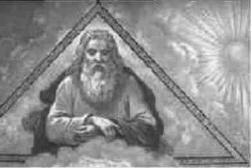Is God Masculine? A Response To Touchstone Magazine Asks: Is Patriarchy Part Of The Grammar Of Christian Orthodoxy? -- By: Alan G. Padgett
Journal: Priscilla Papers
Volume: PP 16:4 (Fall 2002)
Article: Is God Masculine? A Response To Touchstone Magazine Asks: Is Patriarchy Part Of The Grammar Of Christian Orthodoxy?
Author: Alan G. Padgett
PP 16:4 (Fall 2002) p. 16
Is God Masculine?
A Response To Touchstone Magazine Asks: Is Patriarchy Part Of The Grammar Of Christian Orthodoxy?
Alan Padgett is professor of Systematic Theology at Luther Seminary, St. Paul, MN. He is the author of God, Eternity, and the Nature of Time (Wipf & Stock, 2000) and editor of Reason and the Christian Religion (Oxford Univ. Press, 1994). He is a consulting theologian for Priscilla Papers .

Remember praying to Howard as a child? Yes, that’s right: “Our Father, whose art’s in heaven, Howard be thy name.” I still think God’s art really is in heaven (or at least some of it), but the name of God I know now is a more glorious one: Father, Son, and Holy Spirit. Most children think of God as a kind of old grandpa in the sky. One hopes, however, that with age has come a greater wisdom about the nature of our living, infinite, loving Creator.
Is God an old man—or at least a male? The main stream of Christian thought would say no. The reason is simple: the essence of God is Spirit, without a body. To be male or female requires having a body, so God the Blessed Trinity cannot be male (that Jesus is male is not in question here).
While agreeing that God is not male, some tradition-minded Christians have taught that God is masculine. The difference here is that God may represent a kind of masculine spiritual principle without being “male” in the literal sense. The purpose of this article is to refute this idea, and to continue a conversation with the editors of Touchstone magazine on this topic.
The appearance of a gender-inclusive version of the New International Version (Today’s NIV) has sparked a significant debate among evangelical Christians in America. This has provided the occasion, but not the substance, of my debate with the editors of Touchstone magazine (published by the “Fellowship of St. James” in Chicago). I am very much in sympathy with the purposes of this “journal of Mere Christianity,” which seeks to provide a traditional yet ecumenical approach to issues facing the church today. Catholic, Orthodox, and evangelical Christians share much in common, and their conversation, convergences, and conflicts are important for the future of Christianity. No doubt it is because I share much of their theological viewpoint that I find the theology expressed in two recent editorials so puzzling. Perhaps their fondness for C. S. Lewis has led them to follow him in asserting the masculine character of God.You must have a subscription and be logged in to read the entire article.
Click here to subscribe
